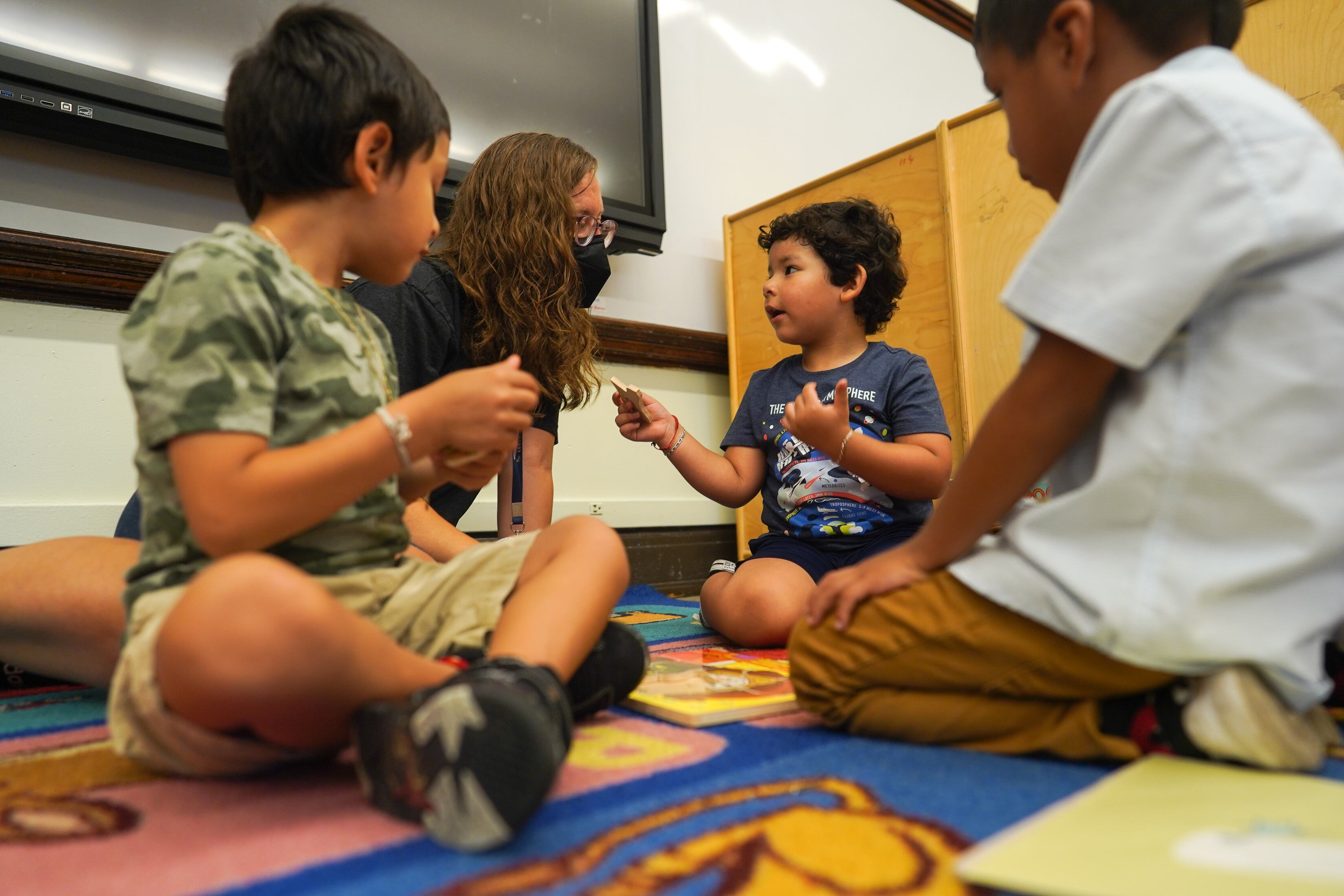The Chicago Early Childhood Workforce Partnership Employer Council is urging state and local lawmakers to re-evaluate how they fund early education, similar to how the state overhauled and increased K-12 funding five years ago.
A funding overhaul is needed, the council says, to fix disparities found in a study it commissioned late last year to identify pay gaps between early career educators, public school elementary teachers, and other job sectors.
Among the findings from the study and the council’s policy position paper released last week, Chicago’s early childhood educators are paid $18,000 less on average than elementary school teachers, despite having the same degrees. The gap is even wider for early educators of color, almost 4% when compared to white educators. Educators in K-8 and other industries outside of education often receive better benefits than early educator teachers.
In the policy position paper, the council calls on Gov. J.B. Pritzker, Chicago Mayor Lori Lightfoot, and other state and local elected officials to implement policy that will increase salaries and pay transparency in early education programs, examine gaps between white staff and staff of color, and provide a 5% cost-of-living increase, among other things.
Creating equity between teachers of infants and toddlers and teachers of elementary students is key to addressing a staffing crisis, improving retention, and providing low-income and middle class families with high quality care, said the council. Without better pay, the council says in its policy position paper, a quarter of Chicago’s early childhood educators and more than a third of administrators and home-based providers are projected to leave the field in the next five years.
Bela Moté, the president and CEO of the Carole Robertson Center for Learning and co-chair of the Early Childhood Workforce Partnership said the study repeats what early childhood education advocates, educators, and providers have long been saying and provides better data about what is happening in Chicago.
Her hope is the information will help the council make its case to lawmakers.
“We can’t be responsive. We can’t be competitive. We can’t be equitable if we’re at the mercy of formulas that don’t even consider a cost of living.” Mote said in an interview with Chalkbeat.
The council commissioned the Policy Equity Group — a Washington, D.C.-based policy organization — at the end of last year to look at Chicago’s Head Start programs. The group surveyed about 500 participants from private, public, and home-based early childhood providers in Chicago. The study focused on wages, benefits, and bonuses in early childhood education in comparison to Chicago Public Schools.
While Chicago Public Schools does not employ educators that work with children between the ages of 0-3 years old, the study compared salaries based on credentials that educators in K-12 and early childhood both have — such as college degrees and professional licenses.
The study found that the salary range for teachers in Chicago Public Schools is higher than the salary range for Head Start educators. One major gap was found in the role of “lead teacher.” The salary range for entry-level Head Start lead teachers is between $16 to $25 per hour, while Chicago Public Schools lead teachers start at $34.78 per hour.
The study also compared early education teachers’ pay to other industries such as transportation, food services, nursing, and ride-sharing. It points out that a Head Start lead teacher could make more in non-education jobs. For instance, the study found, Uber and Lyft drivers start off earning $19.01 an hour and Amazon pays between $18 to $24.
The results align with national findings that show early childhood educators in Illinois are paid about 30% less than public elementary school teachers in kindergarten through eighth grade despite having the same degree and license.
When looking at employee benefits, the study found that both early childhood education programs and Chicago Public Schools have good benefits. However, Chicago Public Schools provide more benefits including 10 days of paid parental leave, protection under the Families and Medical Leave Act for eligible employees, and the ability to take the summer off.
When looking at industries outside of education, the study found better benefits and bonuses for workers. According to the study, Amazon’s benefits include medical, dental, vision, prescription drug coverage, and parental leave. Amazon provides up to $3,000 sign-on bonuses, while Lyft offers a $2,000 sign-on bonus for drivers who complete 170 rides in the first 30 days and Uber gives drivers $2,400 in earnings for completing 200 rides/deliveries in the first 30 days in Chicago, the study says.
Samantha Smylie is the state education reporter for Chalkbeat Chicago, covering school districts across the state, legislation, special education, and the state board of education. Contact Samantha at ssmylie@chalkbeat.org.





